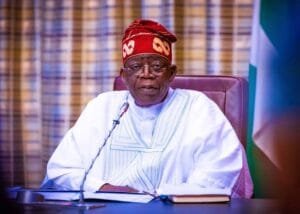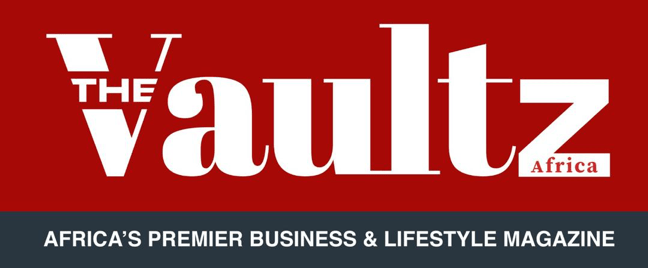
In late November 2024, the Central Bank of Nigeria (CBN) made a significant move by raising its benchmark lending rate by 25 basis points to a new record high of 27.50%.
This decision marked the sixth consecutive rate hike within the year, reflecting the CBN’s persistent efforts to combat rising inflation and stabilize the Nigerian economy. The move, aimed at curbing the country’s worst cost-of-living crisis in decades, also sought to protect the naira, which has been under intense pressure due to a surge in dollar demand.
Nigeria’s inflation rate, already at alarming levels, accelerated for the second consecutive month in October 2024, climbing to 33.9%— the highest rate recorded in four months. This spike in inflation has led to severe economic challenges for millions of Nigerians, eroding purchasing power and making essential goods increasingly unaffordable. The last time Nigeria experienced such a protracted period of high inflation was in the 1990s, underscoring the gravity of the current situation.
Governor Olayemi Cardoso, the head of the CBN, pointed out that the primary drivers of inflation were food and energy prices. These essential items have seen significant price hikes, contributing to the mounting financial strain on households. Additionally, Cardoso highlighted the ongoing pressure on the naira, which has faced devaluation and poor liquidity despite the CBN’s intervention efforts. The currency has depreciated by approximately 46% against the dollar throughout 2024, exacerbating the inflationary cycle.
The CBN’s Policy Approach
In the face of these economic challenges, the CBN has opted for an aggressive tightening policy, raising its benchmark interest rate by a cumulative 875 basis points throughout 2024. The latest 25-basis-point hike was intended not only to tackle inflation but also to shore up the naira’s value as the demand for dollars surged in anticipation of the December holiday season.
Cardoso assured the public that the central bank was fully committed to the “war against inflation” and anticipated that the results of its tightening measures would become more apparent in the first quarter of 2025.
It is essential to recognize that the impact of monetary policy is not immediate; there is a time lag between the implementation of policies and their observable effects. The central bank’s current strategy, although difficult, seeks to establish the foundations for long-term economic stability and price control.
The decision to tighten monetary policy is also supported by a closer look at the macroeconomic data. In 2023, Nigeria’s inflation rate was recorded at around 22.5%, a significant increase from 11.4% in 2022. The 2024 inflation figures further compounded concerns. These figures underscore the urgency of the CBN’s policy response and highlight the potential for further economic distress if inflation is not brought under control.
The CBN’s higher interest rates also align with global trends where central banks, including the U.S. Federal Reserve and the European Central Bank, have adjusted their policy rates to address inflationary pressures. However, Nigeria’s context is unique; its inflation is also heavily influenced by supply-side factors such as food and fuel prices. The removal of petrol and electricity subsidies in 2023 under President Tinubu’s administration directly contributed to the surge in inflation, with transportation and energy costs rising sharply.
Implications for the Economy
Nigeria’s economy did show signs of resilience in the third quarter of 2024, with a growth rate of 3.46% annually, marking the fastest pace in three quarters. This growth was primarily driven by the services sector, which has shown remarkable adaptability amid the economic downturn. However, the overall economic performance remains below the 6% growth target set by President Bola Tinubu, suggesting that while the economy is growing, it is still far from reaching its full potential.
The CBN’s decision to hike the policy rate has been met with mixed reactions from economists and market experts. Many believe that the tightening cycle may be nearing its conclusion, with no expected rate cuts until at least the second quarter of this year 2025. While this conservative forecast provides some stability for financial markets, the persistent inflationary pressure, coupled with a depreciating currency, suggests that the CBN will need to remain vigilant in its approach.
Inflation and currency depreciation continue to pose significant challenges for the CBN and Nigeria’s economic outlook. The persistence of inflation, which erodes consumer purchasing power, coupled with a weakening currency, adds pressure on the central bank to roll out its policies carefully. A failure to stabilize these key indicators could undermine investor confidence and hinder economic progress. Thus, while the CBN’s current strategy may provide a temporary measure of stability, it will need to be complemented by other fiscal and economic initiatives to foster growth and restore balance.

The Naira’s Struggles
The naira has been a focal point of concern for both policymakers and ordinary Nigerians. Since the beginning of 2024, it has experienced a staggering 46% depreciation against the dollar. This devaluation stems from the central bank’s decision to move away from its previously artificial exchange rate peg, a step taken to align the naira’s value more closely with market forces. While this transition has allowed for more market-driven exchange rates, it has also led to increased volatility and uncertainty.
The CBN has made efforts to alleviate this pressure by supplying dollars to meet domestic demand, but these interventions have been insufficient to fully stabilize the currency. Poor liquidity in the foreign exchange market continues to be a significant barrier, complicating efforts to control inflation and maintain investor confidence. The high cost of imported goods, a direct result of a weaker naira, has contributed to the rise in consumer prices, adding strain to the already burdened Nigerian populace.
President Tinubu’s Economic Reforms
President Bola Tinubu has implemented various reforms aimed at strengthening the economy and reducing fiscal deficits. These reforms have included significant cuts to fuel and electricity subsidies and the devaluation of the naira. The rationale behind these measures is to redirect financial resources towards more sustainable and productive uses, reduce government spending, and create a more transparent economic system.
However, these reforms, while necessary for long-term economic growth, have also contributed to the inflationary environment. The removal of subsidies led to an immediate spike in the cost of living, as consumers faced higher prices for basic goods and services. Energy costs, in particular, have been a major driver of inflation, as the prices of petrol and electricity are critical to both production and transportation.

While these measures are expected to lift economic growth and shore up public finances in the long term, they have added to the short-term inflationary pressure. This dilemma underscores the difficult balancing act that policymakers must perform— promoting sustainable growth while curbing inflation and protecting consumers’ purchasing power.
Economists’ Perspectives and Future Outlook
The recent rate hike has prompted many economists to question whether Nigeria’s tightening cycle is nearing its end. While some believe that the central bank may hold off on further hikes to allow the economy to adapt to the current rate environment, others argue that rate cuts are unlikely until at least the second quarter of 2025. The underlying reason for this cautious outlook is that inflation remains persistently high, and achieving a stable naira is crucial for long-term price stability.
A stable naira would be pivotal in containing inflation, as it would reduce the cost of imported goods and alleviate the strain on consumers. If the CBN can achieve currency stability through continued interventions and policy adjustments, further rate hikes may not be necessary. The success of these efforts would hinge on addressing liquidity issues in the foreign exchange market and ensuring that there is sufficient dollar supply to meet domestic demand.
The central bank’s commitment to combating inflation is clear, but the path forward is fraught with challenges. The CBN’s actions in the coming months will need to strike a delicate balance between maintaining high interest rates to control inflation and supporting economic growth to avoid a potential recession.
There is also the question of public perception and economic confidence. As the government continues to implement reforms that have immediate, painful effects on the population, there will need to be a clear and effective communication strategy to ensure that the public understands the long-term benefits of these policies. Without this, there could be a risk of social unrest or diminished investor confidence, further complicating economic recovery efforts.
The Central Bank of Nigeria’s recent policy rate hike is a testament to its dedication to tackling inflation and protecting the naira. However, the fight against inflation is far from over, and the coming months will be crucial in determining whether the measures taken will lead to a more stable and prosperous economic environment. With a strong focus on currency stability and continued policy vigilance, there is hope that Nigeria can navigate through this economic storm and emerge stronger in the future.


